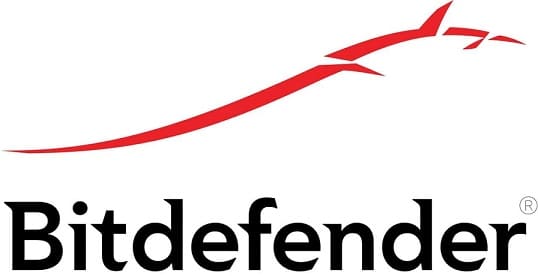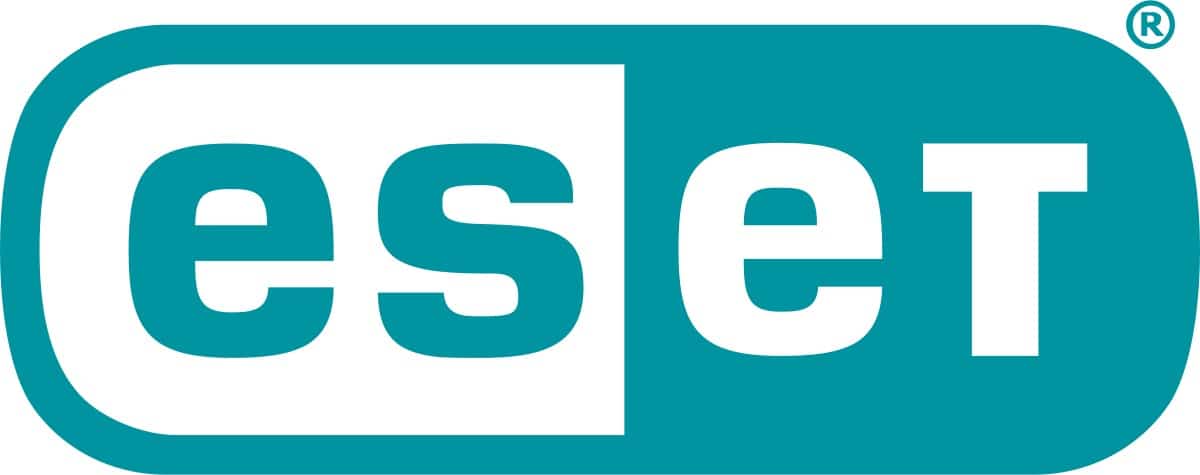The antivirus market is competitive, with an increasing number of providers looking to attract your attention. One way they attempt to do this is by offering features beyond traditional antivirus protection, be it cloud backup, a password manager, VPN, or even identity theft protection. The latter is particularly important because identity theft carries many risks, one of the biggest of which is the loss of money.
Identity theft protection helps safeguard your personal and financial information, preventing it from being stolen or misused. It monitors your personal information, be it your Social Security number or credit card details, for signs of suspicious activity. If anything untoward is detected, you’ll receive alerts to quickly take action and prevent further damage.
Below, we’ll take you through the best antivirus programs with identity theft protection so you can find one that fits your security needs. First, here’s a quick overview of each in case you’re looking to make a quick decision:
- Norton: Best antivirus with identity theft protection. Includes stolen funds reimbursement. Has a user-friendly dashboard and a very strong protection score.
- McAfee: Individual and family plans with identity theft protection. Provides 24/7 monitoring and alerts. Covers all of your devices and includes a password manager.
- Bitdefender: Identity protection for US users. Dark web monitoring, lost wallet assistance, and up to $2 million in insurance. Impressive independent testing scores.
- ESET: Scans the dark web, social media, and credit reports, providing alerts in the process. Identity recovery and up to $1 million in insurance. 24/7 real-time protection.
- Avast: Secure all of your devices. Identity theft protection with 24/7 personal assistance and up to $2 million coverage. Ransomware protection and a VPN with unlimited data.
Criteria for the best antivirus with identity theft protection
Rather than automatically selecting antivirus providers offering identity theft protection, we evaluate each on a set of key criteria. This ensures that you’re getting not only protection for your personal information but comprehensive protection from other malware as well as strong performance. Here’s what we looked for:
- Identity theft protection features
- Real-time protection from threats
- Lightweight for minimal slowdown
- Protection for multiple devices
- Easy-to-use apps and customer support
Best antivirus with identity theft protection
Here’s our list of the best antivirus programs that include identity theft protection:
1. Norton 360 with LifeLock Select
Norton 360 with LifeLock Select is your best bet if you want a quality antivirus software that includes identity theft protection. It monitors the web for your personal information, be it your contact details or Social Security number. Dark web monitoring scans black markets for your identifying information. You’re then notified if your information is found so you can take the necessary steps to secure it. All of this is available via a very user-friendly dashboard.
LifeLock includes stolen funds, personal expense reimbursement, and coverage for lawyers and experts. This is all part of a plan that allows you to secure up to 10 devices. The protection is powerful (we gave it a near-perfect protection score of 99.75) and keeps you safe from viruses, malware, and even ransomware. There’s no shortage of extra features with a password manager, VPN, or parental controls bundled in.
You can use Norton 360 apps for Windows, Android, Mac, and iOS.
Pros:
- Extensive monitoring of your data
- Secure up to 10 of your devices
- Very impressive protection scores
Cons:
- Doesn’t make it easy to turn off auto-renewal
BEST ANTIVIRUS WITH IDENTITY THEFT PROTECTION:Norton 360 with LifeLock Select provides comprehensive identity theft protection. This includes dark web monitoring and reimbursement for stolen funds. Excellent protection scores and offers a password manager and VPN. You can try Norton 360 risk-free thanks to its generous 60-day money-back guarantee.
Read our full Norton Antivirus review.
2. McAfee+
McAfee+ provides identity theft protection for its individual and family plans, providing plenty of flexibility. It has 24/7 identity monitoring and alerts. This involves dark web scanning for up to 60 unique types of personal information. You’ll then receive alerts should anything be found. Opt for the McAfee Advanced or Ultimate tier. You’ll have even more identity features, such as up to $2 million in identity theft coverage and bank and credit card transaction monitoring.
One of the main advantages of the McAfee+ plans is that there’s no device limit. This antivirus provider scored well in testing, be it performance, protection, or transparency. This is further backed up by its strong performance in independent testing labs. As part of your subscription, you’ll get a host of extras such as a VPN, password manager, and even a new social privacy manager for quick and easy adjustment of your various privacy settings.
McAfee has apps for Windows, Mac, Android, and iOS.
Pros:
- Protect all of your devices
- Very strong all-rounder
- Plenty of extra features
Cons:
- Only possible to switch off auto-renew after buying
STRONG ALL-ROUNDER:McAfee+ offers protection for all of your devices and offers identity monitoring and alerts around the clock. Option of up to $2 million in identity theft coverage. Very strong scores in testing and includes a password manager. 30-day money-back guarantee.
Read our full McAfee Antivirus review.
3. Bitdefender Ultimate Security
Bitdefender Ultimate Security includes a wealth of identity protection features with the caveat that they’re only available to US users. Indeed, you’ll be required to provide a valid Social Security number to make use of them. It monitors everything from the dark web to your social media and provides prompt alerts to prevent damage. With the Ultimate Security Plus plan, you get even more, including identity theft insurance of up to $2 million.
Bitdefender Ultimate Security bundles some extras, such as assistance should your wallet be lost or stolen. This is on top of an extensive set of features, including an unlimited data VPN, password manager, and parental controls. Bitdefender performed well in our tests, with a 99.3 protection score and perfect false positive and transparency scores. Indeed, AV-Test gave it full marks for protection, performance, and usability.
Bitdefender Ultimate Security provides desktop (Windows and Mac) and mobile (Android and iOS) apps.
Pros:
- Vast array of identity theft protection features
- High scores in independent testing labs
- Extras including a password manager
Cons:
- Identity protection for US users only
THOROUGH IDENTITY PROTECTION:Bitdefender Ultimate Security has everything from real-time fraud monitoring to Social Security number tracking. Its comprehensive features extend beyond this to a VPN and password manager. 30-day money-back guarantee.
Read our full Bitdefender Antivirus review.
4. ESET Home Security Ultimate
ESET has three Home Security subscription tiers but it’s only with Ultimate that you’ll gain access to its set of identity theft protection features. It continuously monitors your identity by scanning the dark web, credit reports, and social media. You’ll receive alerts that keep you updated on data breaches as well as identity theft incidents. It includes lost wallet assistance, identity recovery, and up to $1 million in identity theft insurance.
This antivirus provider had one of the best protection scores in testing (99.5) and received full marks from AV-Test in both protection and performance. Aside from this, you can expect 24/7 real-time protection from malware such as trojans and spyware. ESET Home Security Ultimate also offers a password manager, file encryption, and an unlimited VPN. The Ultimate plan secures up to five devices but there’s an option to pay more to protect up to 10 devices.
ESET apps are offered for Windows, Android, Mac, and iOS.
Pros:
- Extensive monitoring and alerts
- Strong protection scores
- Unlimited data VPN included
Cons:
- Quite expensive
EFFECTIVE PROTECTION:ESET Home Security Ultimate stands out for its very strong protection and in-depth monitoring. Provides alerts should your information be compromised. Not cheap but does include a VPN and password manager. 30-day money-back guarantee.
Read our full ESET Antivirus review.
5. Avast One Platinum
Avast One Platinum is Avast’s most comprehensive plan, providing antivirus and malware protection alongside 24/7 identity monitoring. You can share this plan with up to six family members, covering up to 30 devices. When it comes to identity theft protection, Avast One Platinum scans the dark web, social media, credit reports, and more, providing alerts if any information is leaked. There’s also 24/7 personal assistance should any issues arise.
It should also be noted that Avast One Platinum includes up to $2 million in coverage for reimbursement in the event of identity theft. There’s already an extensive set of features on top of this. Most notably, it offers ransomware protection for your files and a VPN with unlimited data and over 50 server locations. Better still, Avast earned a perfect score for both protection and performance in our testing. It also scores very well in independent testing.
Choose from Avast apps for Windows, Mac, Android, and iOS.
Pros:
- 24/7 identity monitoring
- Covers six people and 30 devices
- Strong protection without significant slowdown
Cons:
- Doesn’t make canceling easy
Our score:
FAMILY-FRIENDLY:Avast One Premium protects personal information around the clock by monitoring the dark web, social media, and more. If you need any help, 24/7 assistance is available. Includes a VPN and supports up to 30 devices. 30-day money-back guarantee.
Read our full Avast Antivirus review.
Testing methodology: How we found the best antivirus with identity theft protection
We carried out real-world tests on antivirus tools to find the best antivirus with identity theft protection. We look from the perspective of you, the consumer, placing particular importance on an antivirus program’s ability to detect and remove malware, as well as system performance during scans. Independent lab tests are also taken into account and factor into our decision.
- Malware detection and removal: First and foremost, any antivirus program (identity theft protection or otherwise), should above all else have the ability to detect and remove different types of malware, be it viruses, ransomware, or spyware. Real-time protection is particularly important because it ensures your system is constantly monitored.
- High level of performance: We prioritize those antivirus programs that don’t significantly slow down your system or consume too many resources. This can be an issue with some antivirus tools, particularly during full scans. The ability to schedule scans for times when you’re not using your device is particularly helpful.
- Identity theft protection: Some antivirus providers claim to offer identity theft protection yet have offerings that are just too limited. That’s why we only selected those antivirus tools that offer numerous identity theft features. These may include dark web monitoring, phishing protection, credit monitoring, or even identity theft insurance.
- Ease of use: Chances are that you don’t want to have to spend countless hours trying to get your antivirus set up. With this in mind, we’ve looked for those antivirus solutions that provide user-friendly apps. The dashboards should be easy to navigate, as should their respective settings pages.
- Additional features: If you’re having trouble separating a couple of antivirus providers, you may want to consider the extra features they offer. This may include anything from a password manager to a VPN. Not all extra features will necessarily appeal but it only takes one to potentially persuade you to choose one antivirus over another.
- Pricing and transparency: Antivirus protection can be expensive but it helps when providers offer first-year discounts. We look for these offers and keep in mind the cost of a subscription the following year. At the same time, we’re looking for transparency as to price changes as well at the provider’s auto-renewal and cancellation policies.
Here we’ve covered just some of what we’re looking at in an antivirus with identity theft protection. Our antivirus software testing methodology post goes into further detail regarding our process for analyzing antivirus programs.
How to use an antivirus with identity theft protection
Using an antivirus with identity theft protection is much the same as using one without. The key difference is that there’ll be some extra features, most of which are already activated once you download and install the antivirus program.
Here’s how to set up your antivirus with identity theft protection:
- Select your preferred antivirus with identity theft protection. We particularly recommend Norton 360.
- Download and install the antivirus program compatible with your device from the official website of the antivirus provider.
- Open the antivirus and run a scan to check for any existing malware. If any threats are detected, follow the prompts to remove them.
- Go to the section of the antivirus app that contains the identity theft protection features. Provide any details you’d like the identity theft protection to monitor.
- Make sure you conduct regular scans and enable automatic updates. You should also regularly monitor account activity and take action accordingly.
How to protect your personal information online
Aside from using a quality antivirus with identity theft protection, there are various things you can do to safeguard your data and reduce the risk of identity theft:
- Use strong passwords: Avoid using common passwords that can be easily guessed. Combine upper and lower case letters, numbers and symbols. A password manager helps you create strong, unique passwords without having to remember them all.
- Enable two-factor authentication: Two-factor authentication, or 2FA, adds an extra layer of security to your accounts. This requires providing a second form of verification, usually a code via SMS or an authenticator app to log in to accounts.
- Use a VPN: With a VPN, your internet traffic is encrypted, making it difficult for hackers to intercept your data. This is particularly important when connecting to unsecured public wifi networks where login credentials and payment information may be exposed.
- Keep software updated: It’s important to keep your antivirus software, system, and apps updated to their latest versions. Hackers are constantly looking to exploit vulnerabilities but security patches help you stay ahead.
- Limit sharing of personal details: Be wary of sharing personal information online, particularly on social media and unfamiliar websites. If you do need to share personal data, make sure the website uses HTTPS (look for the padlock symbol).
- Be suspicious of unsolicited links: Many antivirus programs block phishing attempts but you should still avoid clicking on links in unsolicited emails until you can verify their legitimacy. Take the time to verify the sender’s identity before providing personal data.
Antivirus with identity theft protection: FAQs
What are the risks of identity theft?
Identity theft carries multiple risks, all of which can cause stress and be time-consuming to deal with. One of the biggest concerns is that thieves can use your identity to make unauthorized purchases and even apply for loans and credit cards. Needless to say, this can result in you accumulating debt which can in turn damage your credit score. If your credit score takes a hit, you may find it harder to get a loan or a credit card.
The theft of your personal information can also result in legal issues. Criminals may commit crimes using your identity, potentially requiring you to clear your name in a court of law. If identity thieves use your stolen data for tax fraud, tax filings can become very complicated and may lead to legal disputes with authorities. It’s with all of this in mind that it’s important to be proactive with regard to protecting your data and ensuring it doesn’t fall into the wrong hands.
How does dark web monitoring protect my identity?
Dark web monitoring won’t prevent your data from being stolen. What it does do is scan the dark web to check for leaked or sold personal data such as a password, Social Security number, or credit card information.
If your information is found on the dark web, real-time alerts allow you to quickly take action before too much damage is done. This may require changing an account’s password or calling your bank to have your account frozen, for example.
Can an antivirus help prevent phishing scams?
Phishing scams are a common cause of identity theft. Fortunately, many antivirus programs offer tools that protect you from phishing. Web protection can help identify and block known phishing sites.
Email scanning is also important in that it can detect malicious attachments or links that are trying to acquire your data, be it login credentials or financial information. Of course, an antivirus’s malware protection can help by blocking the installation of keyloggers and spyware, preventing them from stealing your data.









